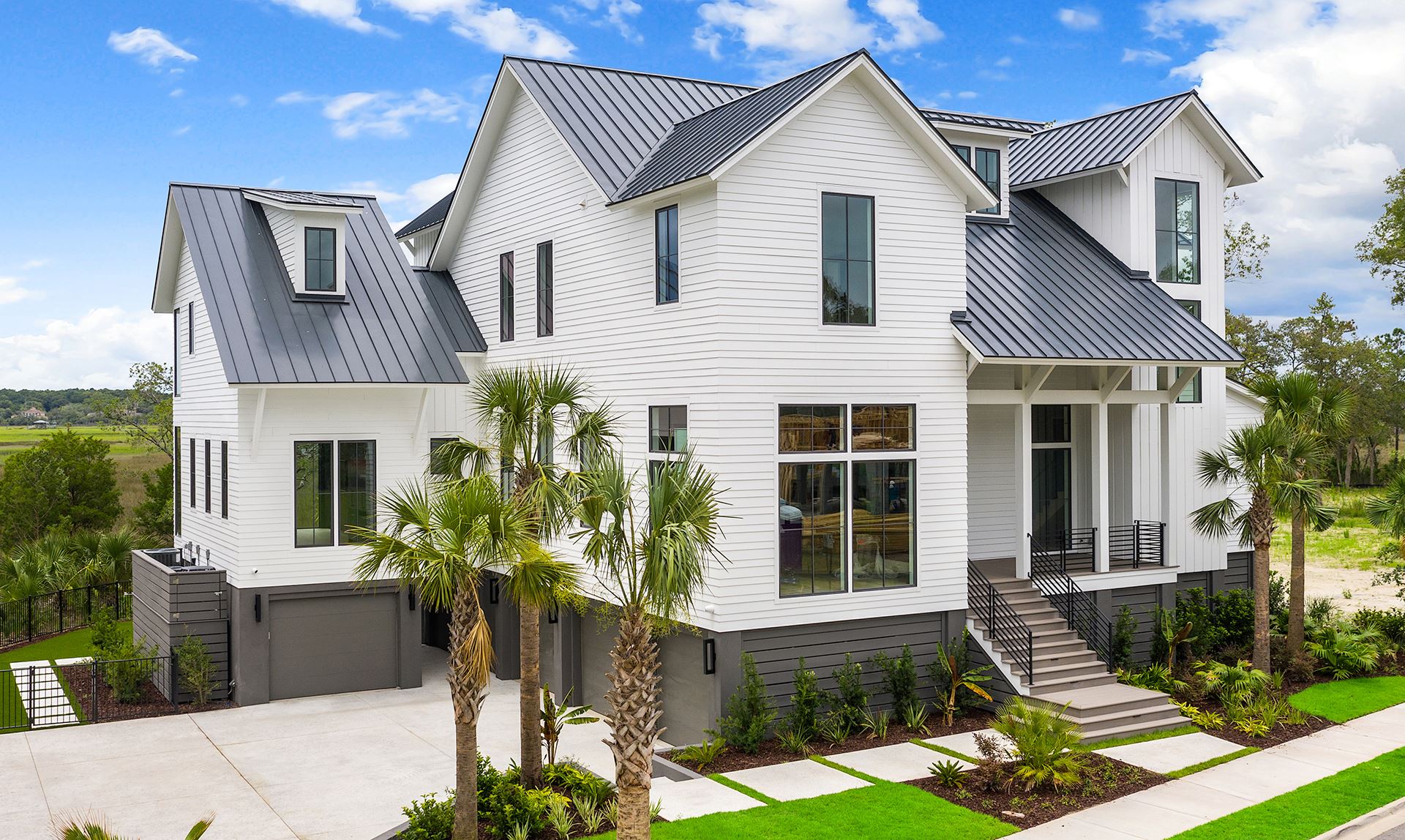
Modern house architecture is an interesting topic which draws attention in many design magazines. This subject is the focus of several books. The British Architectural Kalendar is a yearly publication containing data on architects, studentships and awards. It is an indispensable resource to anyone researching architecture. It contains entries on over 600 names, as well as information about publications, major commissions, and appreciations of architecture.
The Avery Obituary Index of Architects is another important reference book. This bibliography includes the obituaries from more than 500 architects. The architects are listed by their profession. Each entry includes information about their education, major projects and publications.
Das Englische Haus is another reference book that provides detailed information about modern British house architecture. This three-volume volume focuses on British modern house architecture, interior design and architecture. This book contains photographs of every building. It also gives details on the architects who designed each building as well as their practices. It provides a detailed overview of the history of domestic architecture in Britain and is illustrated extensively with works by leaders in the Arts and Crafts movement.

In addition to the Avery Obituary Index, the British Architectural Kalendar, published by the British Institute of Architects, is a must-have resource for research into the history of British architecture. The index lists architects by professional qualification, and the entries include details of the houses, students, and other buildings they have designed.
Contemporary Architects II, based off the articles that were published in Architectural Design Magazine between 1951 and 1953, features case studies of Art Deco architectures and a discussion on the careers of influential architects from the 1930s. It also profiles 25 architectural practices. These include the firm of M.H. Baillie Scott, whose houses feature prominently in this volume. It also features the work Charles Rennie Mackintosh (Edgar Wood), and C.F.A. Voysey.
Lawrence Weaver continues to examine forty houses in the third volume of Small Country House of Today. These houses are intended to represent a definite architectural conception for today's needs. He believes every building should be a living, breathing and practical object that reflects the personality of the owner. It is hoped that this book will encourage people to become more interested in practical equipment and to consider their home as an expression of their own personality.
A lecture series about ideal homes is sponsored by the Women's Architectural League. These lectures take place in Los Angeles. In addition to providing a detailed description of the houses in this volume, the book also contains information on shops, cinemas, churches, and public buildings.

Even though many of these projects were not completed by the author, he makes a compelling case for the importance and preservation of vernacular Architecture. He stated that this is not only about aesthetic value but also about improving everyday life for ordinary Americans. It does not have to be large to allow one to live comfortably. Rather, good architecture should be able to enhance the average American life."
The Small Country House of Today was a pioneering book which aimed to look at each house individually as an architectural concept. It was a pioneering effort on the part of the Community Arts Association, which launched the small house movement in the 1930s. This small house concept, in addition to having an impact on modern architecture has also been instrumental in launching a new wave affordable housing.
FAQ
What is the cost of renovating a house?
Renovations usually cost between $5,000 and $50,000. Most homeowners spend between $10,000-$20,000 on renovations.
Is there any way to save money when renovating my home?
By doing all the work yourself, you can save money. For example, you could try to cut down on the number of people you use during the renovation process. Another option is to try to lower the cost of the materials you use in your renovations.
How important it is to be pre-approved for loans?
It's important to be pre-approved for mortgages. This will allow you to determine how much money you can borrow. It also helps you determine whether or not you qualify for a particular loan program.
How can you avoid being ripped off during renovations to your house?
It is important to understand what you are buying to avoid being scammed. It is important to carefully read all terms and conditions before signing any contract. You should also not sign any unsigned contracts. Always ask for copies of signed contracts.
You can live in a house while it is being renovated.
Yes, you can live in your house while you renovate it.
Are you able to live in your house while the renovations are ongoing? The time taken to complete the work will impact the answer. If the renovation takes less than two months, then you can live in your house while it is being built. You cannot live in your house while the renovation process is ongoing if it lasts more than two years.
You should not live in your house while there is a major building project underway. This is because you could be injured or even killed by falling objects on the construction site. Noise pollution and dust from heavy machinery on the job site could also be a problem.
This is especially true for multi-story houses. In this case, the sound and vibration created by the construction workers might cause severe damage to your property and its contents.
You will have to live in temporary accommodation while your home renovations are underway. This means that your home won't provide all the amenities you need.
You won't be allowed to use your dryer or washing machine while they are being repaired. It will be difficult to bear the smell of paint fumes as well the sounds that workers make.
All these factors can result in stress and anxiety within your family. You should plan ahead to avoid feeling overwhelmed by this situation.
When you decide to start renovating your home, it is best to do some research first so that you can avoid making costly mistakes along the way.
You should also seek professional help from a reputable contractor to ensure everything runs smoothly.
What should I do before renovating a home?
Fixing up a home starts with cleaning out all the clutter from inside and outside. Next, clean out any moldy areas. Finally, you need to clean off the exterior surfaces and apply fresh paint.
Statistics
- Most lenders will lend you up to 75% or 80% of the appraised value of your home, but some will go higher. (kiplinger.com)
- Rather, allot 10% to 15% for a contingency fund to pay for unexpected construction issues. (kiplinger.com)
- According to the National Association of the Remodeling Industry's 2019 remodeling impact report , realtors estimate that homeowners can recover 59% of the cost of a complete kitchen renovation if they sell their home. (bhg.com)
- Design-builders may ask for a down payment of up to 25% or 33% of the job cost, says the NARI. (kiplinger.com)
- On jumbo loans of more than $636,150, you'll be able to borrow up to 80% of the home's completed value. (kiplinger.com)
External Links
How To
5 Things to Know Before You Start Your Home Renovation
-
Is this something you really want? You will need help if you are going to embark on a major home improvement project such as renovating your bathroom, kitchen, or building a new house. It's possible to feel overwhelmed by such a large project. It could take up a lot of your time and money, and you won't get any real benefits from it. Instead, why not hire someone who knows what they're doing to help out? These people will save you time, stress, and provide a beautiful place to live in.
-
What amount should I spend on a renovation project? This is a common question, but it can make renovations more expensive. It's because you'll most likely be responsible for paying back the majority of the costs. Keep your budget in mind. Without it, you may end up paying a lot but not getting anything back.
-
Do I hire professionals or do I need to DIY? - There's no right and wrong answer. We recommend hiring professional tradespeople, however, if you're able to afford them. They can give you sound advice about how to proceed with your project. They will be able to install the plumbing properly, make sure everything is safe, and give you a warranty after they are done. DIY projects can be frustrating because they require a lot more trial and error. This means that you will have to learn many lessons from the experience. Additionally, you will have to deal all manner of problems that can arise along the way.
-
What are my options? - Don't underestimate what a renovation will cost. Even if you believe you can handle it yourself, it might be necessary to borrow money from your family or friends just to cover the costs. And if you're planning to sell your current property soon after completing the renovations, you'll definitely need to factor in the price of selling it into your calculations.
-
How do I begin? There's no right or incorrect place when it comes down to where to start. However, we would suggest that you choose somewhere that you enjoy working on. That way, you'll be motivated to keep going, and you'll be less likely to procrastinate. Avoid areas that require constant maintenance. If you have to deal with dirt and dust, don't try to redecorate the living room.